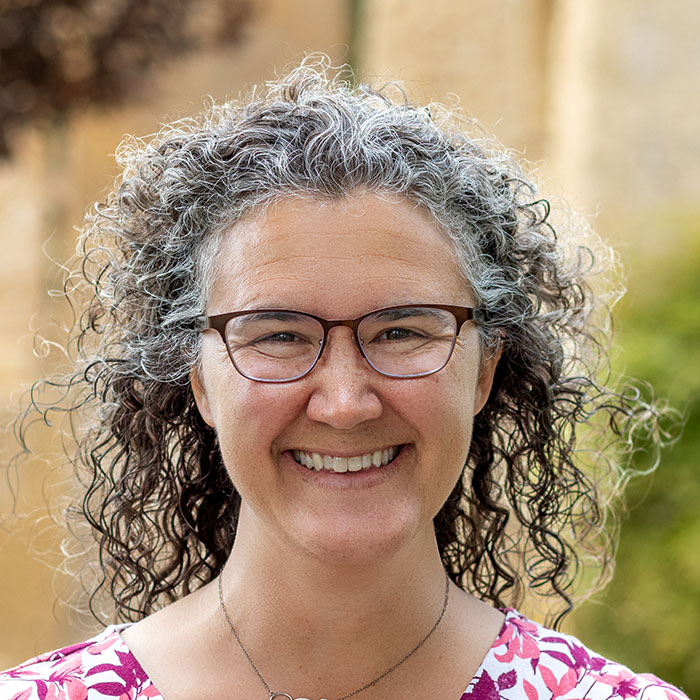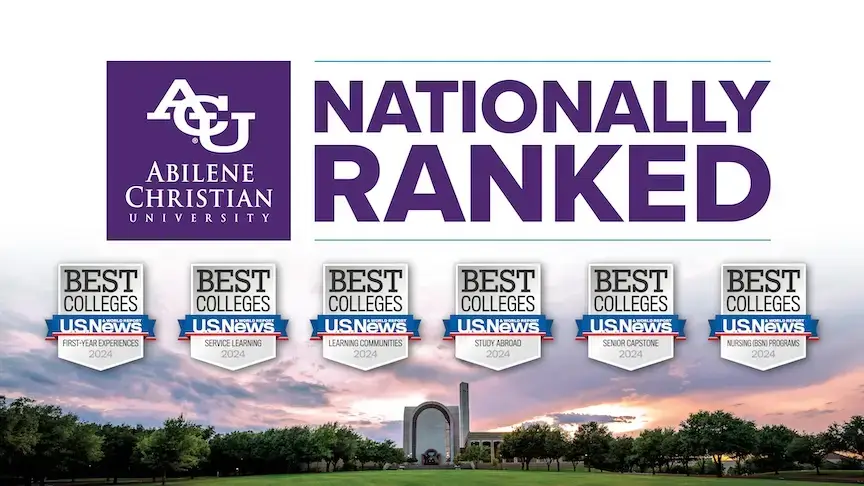Learn More
Growing Through Theological Understanding
Focused on expanding your understanding of contemporary culture, history, leadership, care for others, and personal character, this program will advance your current skills and knowledge on critical thinking, problem-solving, and decision-making for ministerial effectiveness.
Online Option
Interested in completing your coursework online? With our online Master of Divinity, you can get the same flexible degree program all from the comfort of your home.
About the Program

ACU’s Master of Divinity (M.Div.) is the most comprehensive formational degree for ministry that ACU’s Graduate School of Theology offers. It is our shared mission to serve the church by equipping students. The M.Div. is designed to provide you with a firm grounding in scripture, history, and theology, as well as training in practical ministry skills such as the art of preaching and reading cultures and contexts. This graduate degree will prepare you to enter into all forms of ministry or expand your current vocation; it also equips you with a solid foundation for further study in Ph.D., Th.D., and D.Min. programs.
Program Structure
All the Details on Your Degree
Through contextual education courses, you will practice what you’ve learned in specific ministry fields. We believe ministry preparation cannot be “classroom only” learning or merely unguided “on-the-job” training. Along with being taught intensive courses related to foundations of the theology of ministry, theology, ancient languages, and other Christian-focused electives, you will join a growing student body interested in answering their vocational calling in and through their various ministries.
Jump Start Your Master’s Degree
If you plan to pursue a Master of Arts in Christian Ministry or Master of Divinity degree, save money by first enrolling in our Graduate Certificate in Practical Ministry. Simply complete the certificate program, and ACU will seamlessly apply your 18 credit hours toward your master’s.
Required Hours
72 hours
36 month time frame
Example Coursework
Foundations of the Theology of Ministry
New Testament Theology
Introduction to Hebrew I
Christian Mission in a Global Context
Department
Upcoming Start Dates
January 12, 2026
May 4, 2026
Common Job Titles
Lead Pastor
Associate Pastor
Church Administrator
Concentrations
Missions
Within the traditional pathway of the Master of Divinity degree, this concentration focuses on culture, issues relating to the gospel, and preparing you for effective ministry in the diverse and globalizing world.
Ministry
Focused on elements such as character, care, leadership, history awareness, and contemporary culture, you will engage with other professors and scholars interested in learning more about theology, biblical exegesis, and ministerial leadership.
MEET THE PROGRAM DIRECTOR

Dr. Kelli Gibson
Dr. Kelli Gibson is the Program Director for the Master of Divinity. She earned her bachelor’s degree and Master of Divinity from ACU’s College of Biblical Studies in 2007. She received her doctorate at the University of Oxford in 2015.
Spotlight

Purpose Behind Earning a Master of Divinity
As the number of pastors and congregation members diminishes, the need for qualified and trained ministers becomes more prevalent than ever before. Honing in on the various aspects of Christian identity and biblical knowledge, ACU’s online Master of Divinity degree is perfect for those seeking to expand their understanding while seeking to serve in their vocation.

Why Study Theology?
ACU’s mission is to educate students for Christian service and leadership throughout the world, which includes forming students’ spiritual and intellectual development in a distinctively and unapologetically Christian environment. So, with an expanded view of what theology can offer, let’s get more specific. Why should you get a theology degree?

U.S. News Highlights ACU’s Nationally Ranked Student Experience for Fifth Year in a Row
For the fifth consecutive year, the student experience at Abilene Christian University, both in and out of the classroom, was ranked as one of the nation’s best in the 2024 U.S. News & World Report rankings released today – in the categories of Study Abroad, Learning Communities, Service Learning, First-Year Experience and Senior Capstone.

GST graduates will be able to demonstrate:
1) Integrated Understanding of Christian Scripture & Tradition
Graduates will be deeply formed by knowledge of the content and theological trajectories of Christian Scriptures and the Christian tradition and integrate it into their ministerial contexts.
2) Discernment of their Vocational Identity
Graduates will clearly communicate their ministerial identity.
3) Capacities conducive to Effective Ministerial Practice
Graduates will demonstrate the emotional and spiritual maturity as well as the vocational skills necessary to fulfill their professional identity.
4) Competence in Interpreting Cultural Contexts of Ministry
Graduates will demonstrate increased competence in assessing and intervening in varied cultural contexts of ministry.
GST MDIV graduates will be able to demonstrate:
1) Pastoral Leadership
MDiv graduates will demonstrate the capacity for informed theological imagination that persuades others to pursue significant and sustainable ecclesial ends.
MDiv graduates will be able to intervene in corporate and individual circumstances in a pastorally sensitive and transformational manner.

To be considered for admission, students must:
- Complete the program application accompanied by a non-refundable processing fee.
- Submit an official transcript of all previous colleges attended. The transcript must indicate an earned bachelor’s degree from a regionally accredited college or university or equivalent.
- Have a cumulative undergraduate GPA of at least 3.0 on a 4.0 scale.
- Submit two letters of recommendation.
- Submit a reflective essay (purpose statement) 3-5 pages typed, double-spaced.
- Complete an academic writing assessment.

The Graduate School of Theology is accredited by the Commission on Accrediting of the Association of Theological Schools, an organization of more than 250 graduate schools that conduct post-baccalaureate professional and academic degree programs to educate persons for the practice of ministry and for teaching and research in theological disciplines.
